Om's Food Hygiene Intervention - May 2013
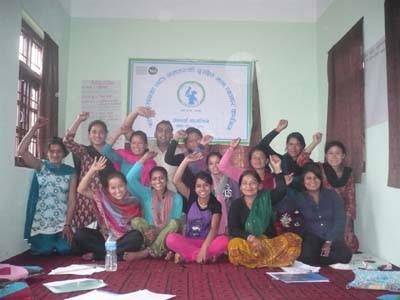
What have I been up to recently?
Having finalised the food hygiene promotion package, I then moved on to establish two field offices within the Baluwapati Deupur and Nayagaun village development committees and recruited office staff members to start field work.
We identified eight suitable clusters against our inclusion and exclusion criteria, four from each village development committee. In each cluster, households with a mother having a child aged 6-59 months were identified and recruited to the study after receiving consent from the child’s mother. Altogether 239 eligible households were recruited. Together with trained data collectors I visited all households to collect socio-demographic information.
Ahead of the intervention, we then moved on to conducting the baseline research.
Stages of the baseline study
Behaviour observations: 25 food hygiene observers (FHOs) were recruited to observe study participants’ food hygiene practices. I provided intensive skill and field based training to all FHOs before they embark to observe mother’s food hygiene behaviours. Five key food hygiene behaviours (see January 2013 blog) were observed simultaneously in each cluster over a ten day period. At least three observers were mobilised in each cluster to observe behaviours and precautions were taken to minimise influence or un-identical bias in mother’s behaviours during observation. FHOs paid particular attention to food storage, cleanliness of serving utensils, handwashing before feeding, re-heating child’s food, and water/milk treatment before feeding. I closely monitored the observer’s work during that period. I was so happy to find such motivated, confidential and strong FHOs to inspect the behaviours of mothers without any difficulties in the given timeframe.
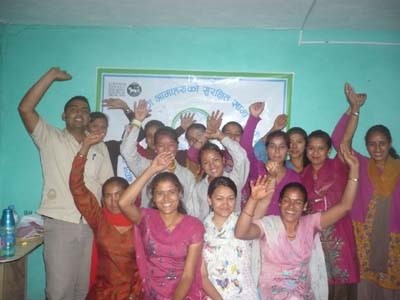
Microbe assessment: To assess the level of contamination (coliforms and E.coli) in commonly used children’s food, I have been working with a lab in Kathmandu. 248 food samples, 80 water samples and 45 milk samples were collected by lab technicians from the eight clusters. From each household, 50ml of milk, 250ml of water and 50g samples of child food at four key stages - immediately after cooking, while feeding, after 5hrs storage and immediately after re-heating - were collected. They were transported in sterilized containers to the Kathmandu lab the same day, taking care to maintaining the appropriate sample temperature. For food and milk samples, 3M PetriFilm (E.coli/Coliforms count plates) were used and for water, membrane filter and Hi-chrome coliform media was used. All collected samples were processed, homogenized, inoculated, incubated and results were interpreted using standard operating guideline prepared for this food hygiene intervention trial. Each household from which food samples were collected received NRs 200 which is the equivalent cost for the amount of food collected.
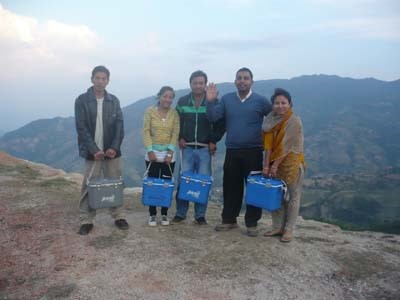
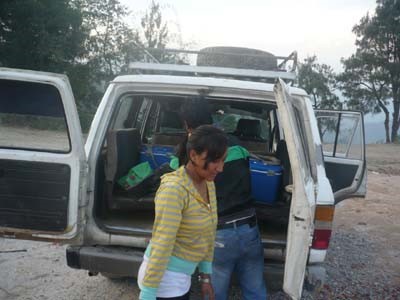
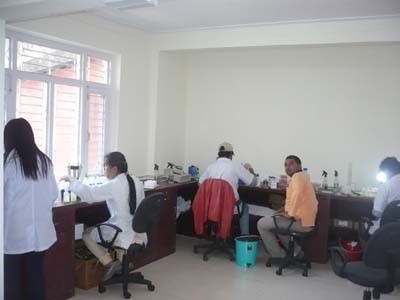
Diarrhoeal status measurement: During the behaviours assessment, mothers were asked if their child aged between 6 and 59 months had had diarrhoea in last 7 days. The WHO definition of diarrhoea was applied to confirm that reported cases were actual diarrhoea. All baseline data were entered into SPSS for further analysis.
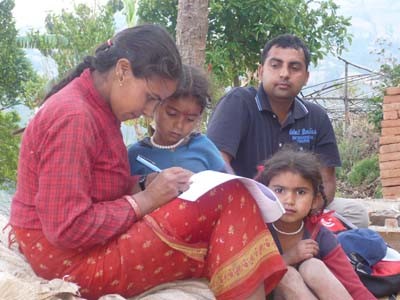
Cluster randomization: After the baseline measurement of socio-demographic and pre-intervention outcome measurement, I checked the comparability of different clusters. The eight clusters were randomized into intervention and control clusters by tossing coin in 4:4 ratio. This ensured that each cluster had an equal chance to be in either group.
Recruitment of food hygiene motivators (FHMs): FHMs are the key resource in my intervention for transferring knowledge and motivating mothers to practise simple and safe food hygiene practices using the ‘Food Hygiene Promotion’ package. 15 FHMs were locally recruited to implement the programme for at least three months. I have received support from the Project Coordination Committee to announce the candidature requirements and to select the qualified, motivated candidates after performing intensive assessment including group discussion, one to one interview and reference checks. All promoters have at least school leaving certificate education and or similar capacity with the Nepal’s Female Community Health Volunteers (FCHVs).
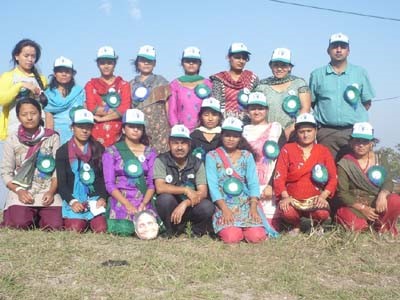
Five days skill based training for FHMs: A five-day residential skill based intensive training programme was organized for all motivators in order to enhance their food hygiene knowledge and skills to execute the promotion package. Training was organized to improve their technical capacity, skills to conduct community events and households visit, as well as their interpersonal communications skills. The training aimed to ensure that FHMs could implement the food hygiene promotion package independently or with limited support. I was extremely pleased to train and develop such a strong team of FHMs.
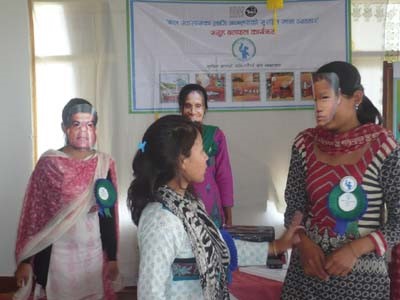
Conducted pre-trial activities: Before running an actual trial, I wanted conduct a test run of the intervention package to identify any problems or difficulties. It was also essential to build the confidence of FHMs before the actual intervention. As planned, the pre-trial activities were performed among 21 households using same methods, procedures, techniques, and using the same tools/materials referring to programmeimplementation guideline. All FHMs were actively involved, giving them the change to practice the whole intervention package with participating mothers in real life scenario. The actual feasibility and relevance of each session and the corresponding materials was also tested during pre-trial sessions. This helped us identify any practical difficulties which might occur while executing actual trial. FHMs also had the chance to experience some real life challenges that might occur and they are now prepared to address such difficulties while executing the actual intervention package in real settings.
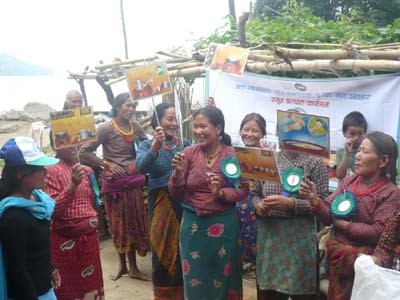
In my next blog, I look forward to telling you all about the campaign kick-off and trial implementation progress!
